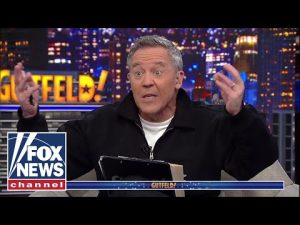In the bustling world of Hollywood, the ultimate plot twist may not be a suspense thriller or a romantic triangle but the introduction of a new star who isn’t even human. Enter Julie Norwood, the world’s first AI actress, who is sparking quite the conversation in the film industry. Created entirely by computer, Julie is now in search of representation from talent agents, and Hollywood’s elites are quaking in their designer boots. The idea that a digital actress could compete against flesh-and-blood actors is raising a slew of questions—and stirring mixed feelings among our favorite celebrities.
For decades, movie stars have mystified audiences with not only their talent but also their personal lives. Julie Norwood, however, lacks the scandals, heartbreaks, and temper tantrums that add that extra spice to celebrity gossip columns. With AI, you don’t get tabloid fodder, and for some, that might be a dealbreaker. There is something a bit too perfect about an actress who never ages, never throws a tantrum on set, and doesn’t require a personal stylist. One might say Hollywood’s love affair with its human stars is deeply rooted in both admiration and a peculiar kind of disdain. You love to hate them, and perhaps that’s part of their charm. After all, who would you rather watch on a late-night talk show—a dramatic diva or a pixelated perfectionist?
Amidst the debate, some voice concerns about the quality and authenticity of art created by machines. The argument against AI actors points to AI’s flawlessness that sacrifices the relatable “human touch.” Sure, AI-generated art splashed across social media may be technically immaculate, but is it truly engaging without the quirks and missteps of human creativity? People want to see their stars on screen, flawed and human, because it reflects the unpredictable world we live in. Even AI needs to master the clumsy waltz of human interaction before it can replace real actors in the eyes of the audience.
Yet it’s undeniable that AI technology is quietly infiltrating the film industry. While Julie might currently be vying for bit roles, some imagine a future where AI enhances star power, allowing digital versions of existing actors to churn out multiple films a year. The studio suits may be salivating over the prospect of reducing downtime—and perhaps pesky actor fees—with their new digital darlings. Imagine being able to package a digital Humphrey Bogart to star beside the human actors of today. Suddenly, the nostalgia trip becomes an everyday affair for moviegoers.
Still, not everyone is thrilled. Human actors are considering blacklisting talent agencies working with AI entities like Julie. It seems the conversation isn’t just about AI actors taking over screens; it’s about who controls these creations and who reaps the real rewards. Can tales from a bygone era satisfy when brought back to life through a computer lens? One thing is for sure: AI in Hollywood is not just a flash; it’s a bang signaling an inevitable, if contentious, transformation. As studios buckle up for a digital future, the question remains: will audiences embrace this new star or stick by their flawed heroes? Only time will tell, and in the meantime, it’s popcorn as usual.







